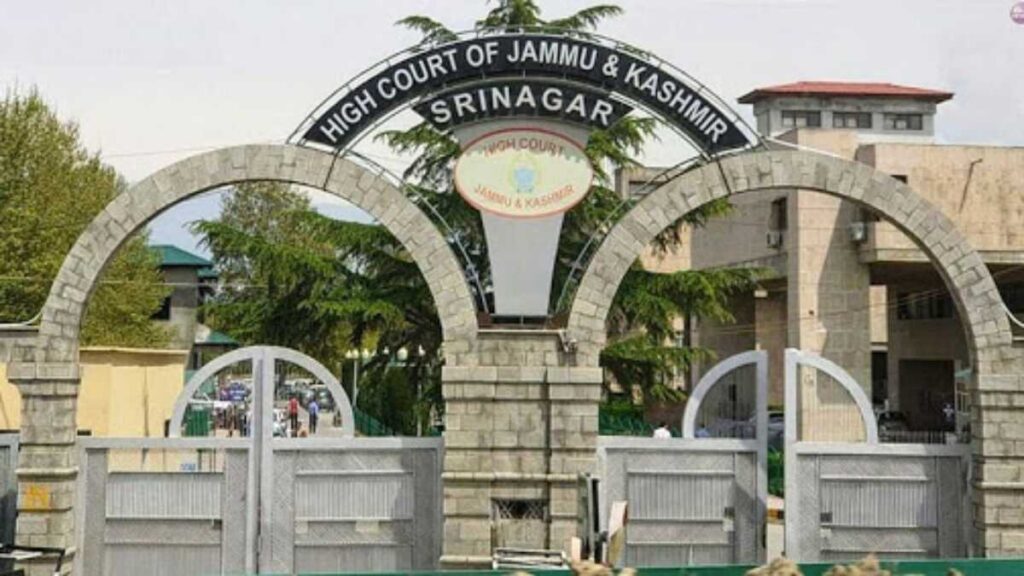Nithyakalyani Narayanan.V
A court in Kashmir has suggested that an Indian Administrative Service (IAS) officer who is the Deputy Commissioner (DC) in the Ganderbal district be transferred and face criminal contempt charges for using his official position to intimidate and harass a judge.
Shyambir Singh, an IAS officer from the 2018 batch who has been DC Ganderbal since 2022, is alleged to have tried to “scandalise” the legal system by looking into the assets of Judge Fayaz Ahmad Qureshi, who had suspended the DC’s pay due to his purported disregard for a previous court order.
Sub-judge Qureshi described the DC as a “constant potential threat” to the judiciary and suggested that the Chief Secretary of Jammu and Kashmir take administrative action against him in accordance with the Government Conduct Rules, 1971, in addition to ordering the criminal contempt proceedings.
This court believes that because of the Deputy Commissioner’s good behavior, a bond has to be issued. The court ordered in its ruling on July 23 that he must be moved from Ganderbal to any other location at least until the criminal contempt procedures are resolved in order to prevent him from producing new evidence or destroying the ones that already exist.
The 12-page order is part of a petition that was submitted on January 20 of this year by a person asking the court to get involved in enforcing a judgment that was rendered on October 31, 2022. Sub-judge Qureshi heard the petition, asked for the state’s response, and also issued an order stopping the DCs’ and others’ salaries for non-compliance.
The court decided that even though the decree holders had the decree in their possession and had been waiting for its fruits for around eighteen months, they were unable to reap its benefits. In the same court, the state filed a challenge to the order, but it was rejected. Nonetheless, the Ganderbal primary district court suspended the 2022 and 2024 decrees.
Sub-judge Qureshi noted that the DC started to carry out “revengeful acts” against him by putting him in “disturbing and unprecedented circumstances” including his “continued harassment” for discontinuing his salary after obtaining a stay order from a higher court.
The order states that the DC organized a meeting and planned, along with a few other officers/officials, to frame the presiding officer (judge) in a fictitious incident and, in the event that this was not feasible, to find out whether the judge’s name appears on any property whatsoever.
The DC illegally assembled a team from the revenue department that paid an official visit to the land with “oblique and malafide motives and evil intention,” and “misused his official machinery” to track down the documents of a small land parcel that the judge had bought before being appointed in the Tullamula locality of Ganderbal in 2009.
When the caretaker questioned a Patwari (revenue official) about the reason behind the abrupt identification of the judge’s land, the official replied that the judge had issued an order against the deputy commissioner and other higher-ranking officers. As a result, the deputy commissioner formed a team to demarcate the land, which the court decided to be “harassment” of the judge.
The order stated that the committee members were not technically authorized to demarcate the property outside of their jurisdiction and that there was “a clear abuse of the official position” by the committee.
The judge stated that he had lawful possession of the land and that the DC was trying to lower the judge’s image by manipulating facts and reality. In actuality, this committee was constituted by (the DC) to manipulate the spot position to demonstrate the land purchased and in possession of the judge as Khascharai, against the recorded and settled spot position.
In Jammu and Kashmir, a common land title known as a “khascharai” is owned by the state but was originally intended for grazing, allowing the government to levy taxes on the grazers. But because of the quick urbanization, this property has also been put to various uses.
There had been no issues with the DC’s land until the order was passed, the judge noted. However, following the judicial order in execution of the petition, the DC’s salary was not paid, and he began abusing his position, putting him at risk of not only contempt but also criminal prosecution under the Prevention of Corruption Act for using his official position for improper purposes.
In accordance with the guidelines, the court has directed a preliminary investigation and served the DC with a show-cause notice before referring the case to the high court for the start of criminal contempt proceedings.

